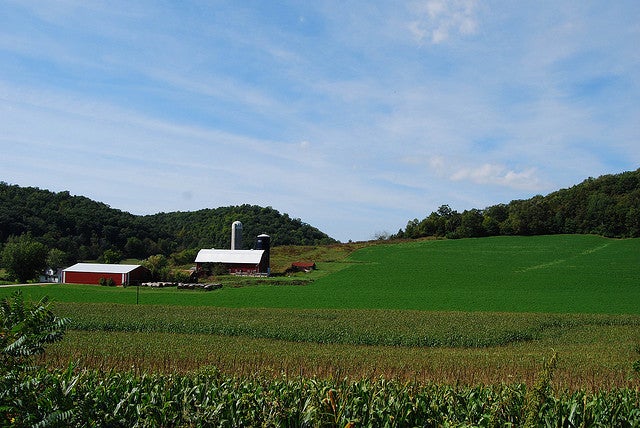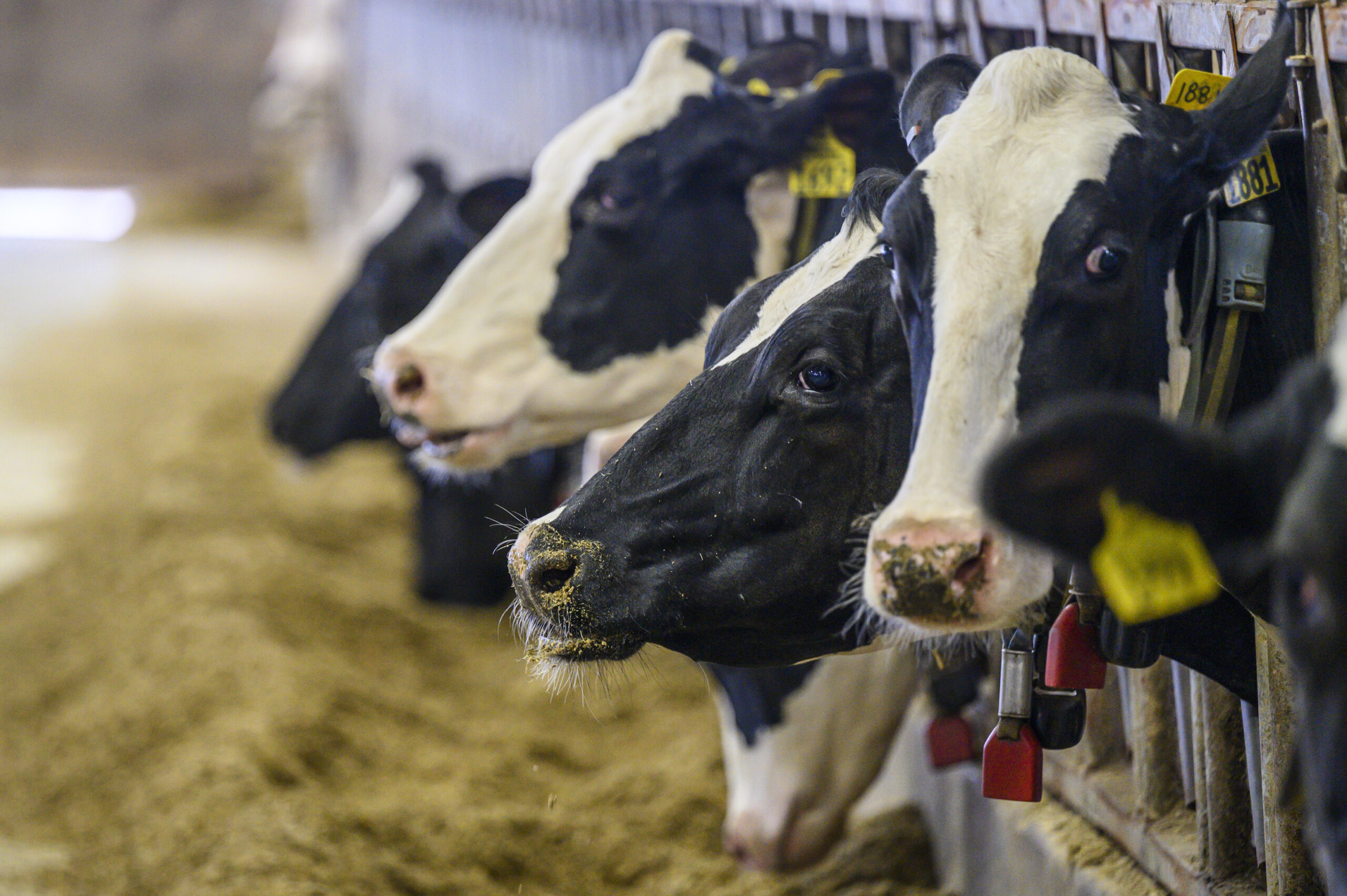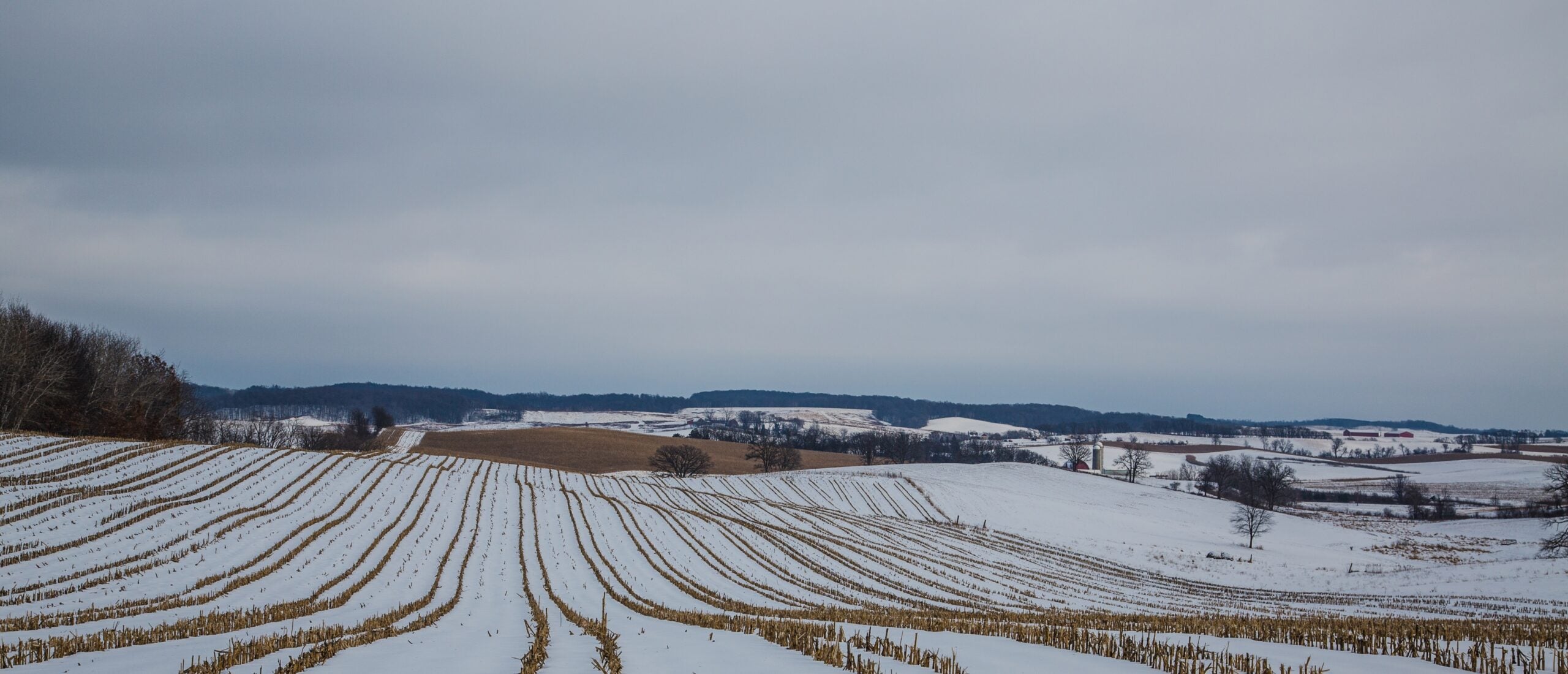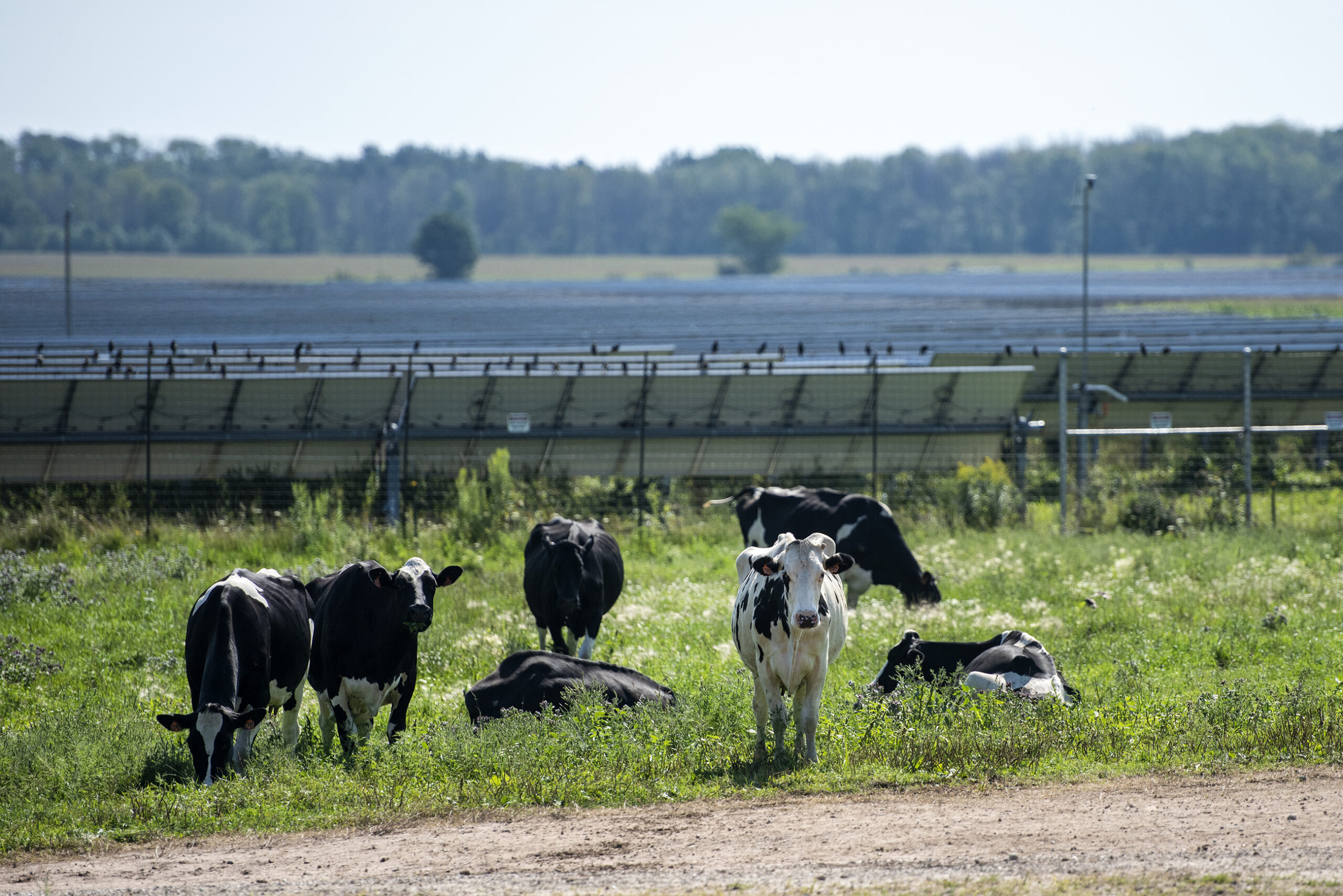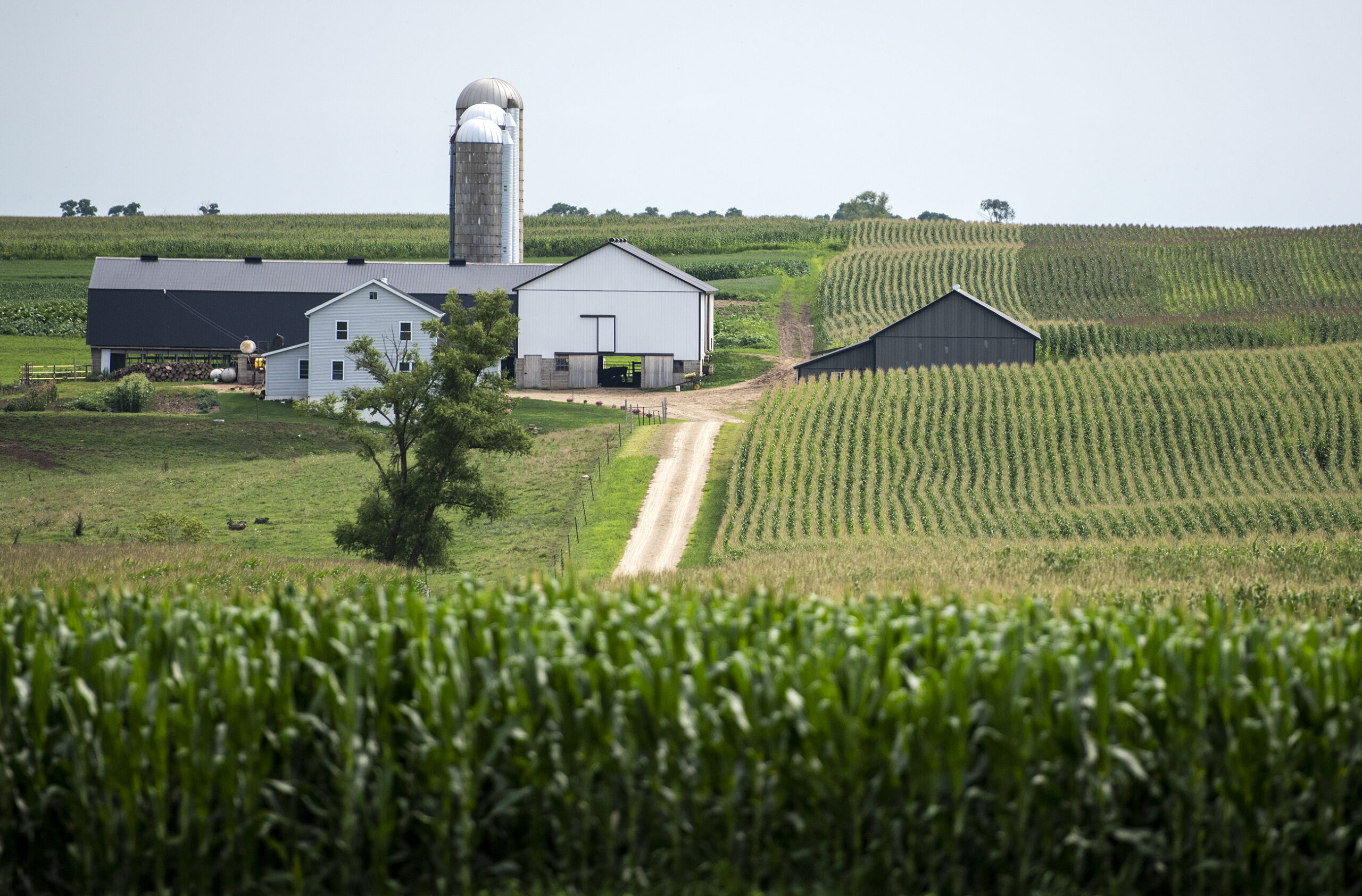Wisconsin’s farmland continues to get more expensive, with the value of the state’s agricultural real estate is up 7 percent this year.
According to the U.S. Department of Agriculture’s National Agricultural Statistics Service, the average acre is worth $4,700. That includes the value of land and buildings on the property.
Bruce Jones, a University of Wisconsin-Madison agricultural and applied economics professor, said that’s because farm incomes have been on the rise, especially for dairy producers.
Stay informed on the latest news
Sign up for WPR’s email newsletter.
“If you own farmland, you’re just grinning from ear to ear if it’s going up in value because you’re building wealth,” said Jones. “If you’re in the business of trying to buy farmland, it’s a bit of a discouragement to see the thing go up in value because it becomes a little less affordable.”
Wisconsin Farmers Union President Darin Von Ruden echoed that sentiment. He said it’s great if older farmers looking to sell their land right now, but added that it’s a tough time for the next generation of farmers.
“It’s really hard for young 20, 30-year-olds to get into it, because they don’t have assets to buy land,” he said. “A lot of financial institutions are leery of lending money at current values and current crop prices to young folks trying to get into business. So it is a double-edged sword.”
Von Ruden also suspects that outside investors and companies could be driving up land prices.
Jones said dairy is helping Wisconsin farmland stay strong, even as land values in cash grain states like Iowa, Illinois and Minnesota continue to fall because of declining corn and soy prices.
Wisconsin cropland is averaging $4,600 an acre. The cost of Wisconsin’s pasture land shot up 16 percent and is now going for about $2,500 an acre.
Jones said that could be because the beef cow herd is declining nationally, so farmers who are raising beef are getting good returns. People may seize this moment to buy pastures to put beef cattle on the land.
Wisconsin Public Radio, © Copyright 2024, Board of Regents of the University of Wisconsin System and Wisconsin Educational Communications Board.

